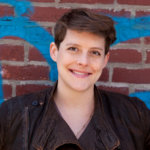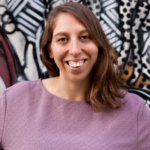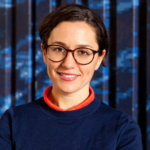How can you build inclusive processes in branding and beyond?
At this moment, it’s important to slow down and create more inclusive teams and processes. Join Farra Trompeter and Dr. Renee Rubin Ross as they discuss participation and equity and share tips on how to make branding more inclusive.
Transcript
Farra Trompeter: Welcome to the Smart Communications Podcast. I am your host, Farra Trompeter, chief growth officer and partner at Big Duck. Today. I am delighted to be joined by Dr. Renee Rubin Ross. I’m going to tell you all about Dr. Ross in just a moment, but we are going to talk about how you can build inclusive processes in branding and beyond. We’ll talk about participation, talk about equity, lots of things. I’m really excited for the conversation. If you’ve been listening to other Big Duck podcasts or reading our blog, you know, we’ve talked about inclusive branding before in the podcast, we write a lot about the idea of both accessibility and your brand, thinking about visuals and messaging. We think a lot about who you engage, whose voices are centered in the process. So this is part of the ongoing work we’ve been doing, and I’m excited to have Renee join us in today’s conversation.
Farra Trompeter: Just a little bit about Dr. Ross. Dr. Renee Rubin Ross is a nationally recognized leader on board and organizational development and strategy,.and the founder of The Ross Collective, a consulting firm that designs and leads inclusive participatory processes for social sector boards and staff. Renee uses she/her pronouns and identifies as a white consultant, (we share that in common). She is committed to racial equity in the nonprofit sector. As such, she supports organizations and individuals, and practices that celebrate and amplify diverse voices and perspectives. In addition to her consulting work, Dr. Ross is the director of the Cal State University East Bay Nonprofit Management Certificate Program and teaches board development and grant writing for the program Dr. Ross lives in the San Francisco Bay Area with her family, and she is a board member of The Alliance for Nonprofit Management. Her doctorate in Education and Jewish Studies from New York University explored parent participation in schools. Renee’s hobbies include running, hiking, playing guitar, and baking sourdough bread, which I know has been all the rage for folks during the pandemic. I did not catch that rage, but maybe someday you can teach me about how to do that. But Renee, I’m so excited to be in conversation with you, welcome to the show.
Dr. Renee Rubin Ross: Yay. Thanks so much. Love the welcome and excited to be here.
Farra Trompeter: As we were preparing for this conversation, I was looking on your website and I noticed that you listed as your life question, “How do we build inclusive spaces in which each person is seen, appreciated, and valued? In which each person has a sense of belonging and contribution?” I love that. And I’m wondering if you can tell us a little bit more about why that’s your mission and maybe share a story about it.
Dr. Renee Rubin Ross: Yeah, absolutely. Thank you. I believe that our challenging experiences can be a source of energy, and also once we make sense of them can be gifts. So some of my early experiences were of being a geeky shy girl who read a lot and didn’t know how to fit in socially. My main hangout spot in middle school was at the back of the library. No joke. And then ultimately that really gave me a lot of awareness around belonging. What does it mean to feel included? Who’s included? Who’s not included? What can we each do to create inclusive teams and groups? And my life work is really to create those inclusive spaces in which each person feels seen, acknowledged, and appreciated. It never gets boring. Every time I do it, there’s a sense of fulfillment and some healing too. And then just like bringing this forward to my work today.
Dr. Renee Rubin Ross: One of the things that I teach people to do, and that I do with my clients, and I think is very relevant to anyone listening, is to take the pulse of the room. How are people feeling? What’s in the room right now when you start a conversation or meeting? And when you do that, people feel seen. It sounds simple. It is simple. On the other hand, I think there’s always an orientation towards the work that we need to get done, right? Which unless there’s intentionality, it doesn’t create that space, so really concretely. Yesterday, I opened a planning meeting with a question that I often use, “What has changed since we last met?” And in this case, sadly, we’ve had an uptick in the Delta variant of the coronavirus. So as we’re working on planning an in-person board retreat, we needed to talk about questions we were going to ask about vaccination status of board members.
Dr. Renee Rubin Ross: And this sounds of course, very essential, and yet there might be a question about whether this is important, and it really is about safety. And interestingly enough, I talk a lot in my work about emotional safety, but in this case, this was physical safety for all the people coming. So it’s really about how are we building safety, so that people do their best work and feel excited and feel energy, which we’re going to talk about also for your brand messages, for planning, for getting the work of your organization out into the world.
Farra Trompeter: Yeah, that makes a lot of sense. I mean, I think oftentimes we have a meeting, we go right into let’s do intros, let’s do our agenda, we get right into the business. And sometimes we forget to even just generally check in with people, but this question that you’ve said, like, it’s so simple, “What has changed since we last met?” I mean, there can be so many things for different people in that question. I really appreciate that, and I’m going to take that and start using that. So thank you for that.
Dr. Renee Rubin Ross: Yeah, absolutely. And if the answer is nothing, then great, we can just go right into it. But it’s just a way of saying we’re here now. There has been some shift and especially with so much changing, I think the more that we can center all of ourselves in the conversation, the more we’re going to be focused on whatever we’re going to do next.
Farra Trompeter: Definitely. So, as you know, Big Duck is a communications firm that specializes in developing brands, whether that’s brand strategies, brand assets, brand experiences for nonprofits. And as part of that work, we’re constantly thinking about brand ambassadors and brand champions, right? Who’s really absorbing the brands? Who is representing the brand? How do we create a brand that is really centered, not just in a few people, but throughout the organization and the community? And I’m just curious when you’re thinking about that role of brand ambassadors and brand champions, who do you think needs to fill that role at nonprofits?
Dr. Renee Rubin Ross: Yeah, that’s such a great question. So the answer is everyone. I believe you are in agreement at Big Duck. So yeah, staff members, board members, I mean, hopefully, clients. As an arts organization, people who are benefiting from all the great offerings. And I think that this is where either in communications or in fundraising, you have a core of what you’re trying to do. The whole thing about these participatory processes is they’re really empowering more people to work on the mission of an organization. The mission of a team together is saying, how do you connect with this? Why is it important to you? And then really, what do you want to do about it?
Farra Trompeter: And I know we’ve had conversations throughout Big Duck and I’ve had them with you around what is equity? And I know that you have a way that you think about defining equity that I’d love you to just speak briefly to, and then we’ll go back to other things we were going to talk about.
Dr. Renee Rubin Ross: Yeah. So just a really quick definition that I’ve used in writing and training to think systems are shifted so that Black, Indigenous, People of Color, who have been historically and systemically disadvantaged in terms of access to wealth, power, education, and health, have the resources to enjoy full, healthy lives. And the people closest to the challenges have the power to dictate the solutions. As with any planning, with any messaging, the more that you’re going to get the people who understand in depth the challenges that a community is experiencing, the better.
Farra Trompeter: You are at 100% in shared company there.
Dr. Renee Rubin Ross: All right. Yeah.
Farra Trompeter: Well, let’s talk about that. How do you think nonprofits can build energy and ownership of the brand messaging in ways that really excite staff, board, the community at large, that people really are ambassadors and feel engaged in the brand?
Dr. Renee Rubin Ross: This is an interesting thing. I think that sometimes what happens is at an organization, you create a message and you get really passionate about it. And it’s almost like, okay, I’m going to pour this message into the brains of all the people around me, of our board members. Now it doesn’t work that way. You’re not going to pour anything into anyone’s brain, right? How is this going to work? You’re actually going to step back and start listening more. And it’s about these kinds of questions. Here’s our brand messaging. How do you connect with this? Why do you feel like this matters to you? Maybe it’s a cancer support organization and the person’s going to say, wow, well, I had a relative who died of cancer and I just feel so committed to the work you’re doing. And all of a sudden, wow. I mean, you’ve gone from some words to a whole story that then comes alive or, you know, any kind of organization, any kind of nonprofit. There’s a sense of mission and the value that this organization is putting into the world and really uncovering those stories.
Farra Trompeter: Yeah. We often try to create messaging tools, you know, a suite of tools, talking points, key messages, boilerplate, elevator pitch, all sorts of things, and then do trainings and conversations around how you can adapt them based on who you’re talking to. So I think it’s sometimes people need kind of the toolkit to pull from, but I totally agree with your point. You want to connect to that audience member and what is central to that audience member. What they need to know and understand is going to be different from person to person and how you connect with what they need and what you’re about and try to find a way to use your communications to build a relationship.
Dr. Renee Rubin Ross: It’s really interesting to use that word “training” because my perspective on training is, as an instructor and as someone who does workshops, my training should be speaking about a quarter of the time and letting the people in the room speak about three-quarters of the time. And that’s not because I’m not prepared. It’s actually because I’m very prepared and I’ve really thought deeply about I’m going to share this and I’m going to let you out there, play with it so that it becomes yours.
Farra Trompeter: I don’t remember the exact stat, but I know that I have, and also as a professor on the side, taking classes in adult learning and that they say students will remember, especially adult students, will remember what they’ve said more than what they’ve heard. So to your point, like people engage with the content when it comes out of their mouth, not just when they’re listening to what’s being told. And to your point as an instructor or facilitator, when you hear what’s coming out of their mouth, when you hear them make it their own, when you hear them ask questions, you can understand more about what’s working and what isn’t. So yeah, I think we’re aligned.
Dr. Renee Rubin Ross: Absolutely.
Farra Trompeter: In crafting a good process. I understand you use four questions to guide the conversation and that’s through a framework called Focused Conversation, which we’ll link to in the transcript, but we don’t have time to get into all those questions. But I was wondering if you could talk about what one of those questions are and maybe what’s behind it?
Dr. Renee Rubin Ross: Yeah, absolutely. So Focused Conversation is a structured series of four questions. And the first conversation is the objective level question. So this question is something like, what is one thing that you notice? And when you ask this question, you want to make sure that everyone in the room answers. So here’s an example, for strategic planning we’ll do surveys and interviews to learn more about an organization and its strengths from different perspectives. Then we’ll create a discovery report that brings us all together and we’ll come together to reflect on this. And the first question is, what is one thing you noticed as you read the report? So you go around, each person needs to respond. Really, really important. What happens? One person says we served more people this year. Another person says our financial situation has gone up and down. And another person says we made some big shifts quickly, and you start to get a lot of data.
Dr. Renee Rubin Ross: Data doesn’t mean some statistics from the World Bank. Data actually means the observations and perspectives of the people in the room. And you also start to see that we’re all different and that is so exciting and that we all have something to contribute to the group. So this is really, really key in terms of beginning to unpack what a group is observing and then how they want to go forward. And you can use the same kind of process. This is actually where we connected initially was, how do you use this kind of process for brand champions? So you can take your brand messaging. I took The Alliance for Nonprofit Management, where I’m on the board. The Alliance is a national voice and catalyst for the field of capacity building. So you might ask people, what’s one thing you notice about this mission statement. People might say, well, “What does it mean to be a national voice? What does it mean to be a catalyst? What is the field of capacity building?” Or whatever it is, and then you start to open up your brand. And then there’s some other questions then usually what people want to do is go right to how do you feel about this? That’s the next question after this, but if you could do that too quickly, then you miss just putting your data on the table, which is really, really important.
Farra Trompeter: Yeah. Renee, there is so much we could talk about, I feel like we might have to do a part two at some point.
Dr. Renee Rubin Ross: Hopefully.
Farra Trompeter: But in the meantime, if the light bulbs are going off, they’re feeling intrigued, where can they go to learn more?
Dr. Renee Rubin Ross: There are many participatory processes out there, Open Space Technology, World Cafe, Liberating Structures, or The Technology of Participation, which I’m a really big fan of. There’s a whole book on Focused Conversation. You can buy it on Bookshop called The Art of Focus Conversation. And my local technology participation trainers are The Center for Strategic Facilitation. I trained with them on strategic planning and all of that.
Farra Trompeter: Great. We’ll run a transcript at Big Duck’s website and we’ll make sure to link to all of those as we do that. I want to mention to you, Renee has just written a blog for us that gets into this topic more about tapping into energy and using these inclusive and participatory processes. So you can read that on our website at bigduck.com/insights. She also has a blog that she’s written about why participation matters to communications and strategic planning that is great. And you can read that and connect with her on her website at therosscollective.com, Renee, anything else you’d like to share?
Dr. Renee Rubin Ross: Yeah, I mean, I think the main thing is that in this challenging moment, it is more important than ever to slow things down. And that is leadership. What is in the room for you right now? What is the data that is emerging? And that might be around coming back to work, that might be around health, that might be around inequality? Whatever it is. The more that we can unearth that, I have my elephant, but I, but this is where you get the power of the group to start taking action.
Farra Trompeter: Great. Well, thank you so much. This was a really exciting conversation. Appreciate you joining us and hopefully we’ll have you back for round two some time.
Dr. Renee Rubin Ross: Oh, wonderful. Thanks so much.






